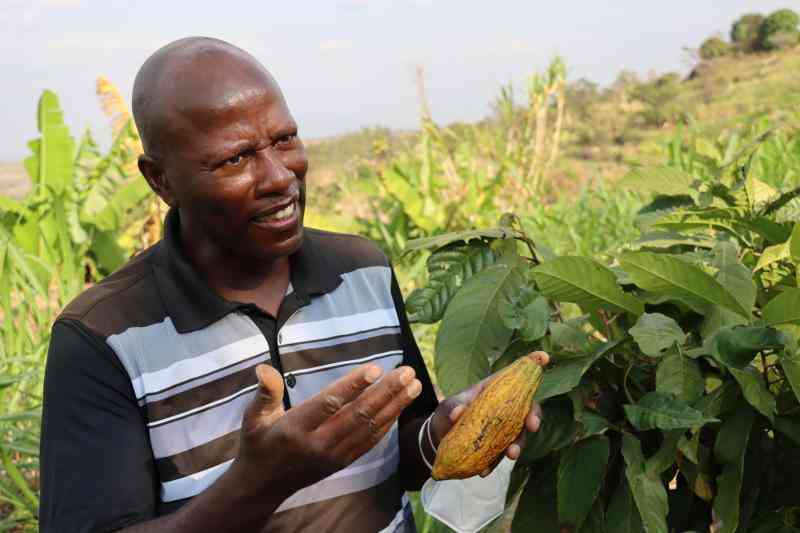
Antony Mugambi shows mature cocoa pods in his two-acre farm. [Phares Mutembei, Standard]
Four years ago, Antony Mugambi, an IT expert based in Meru County, embarked on a journey that would transform both his life and the environment around him. His venture into cacao farming, a crop traditionally associated with West Africa, has proven to be not just a personal triumph but a testament to the untapped agricultural potential in Kenya. Today, Mugambi's cacao farm is a symbol of innovation and resilience, marrying economic success with climate action in a way that few could have imagined.